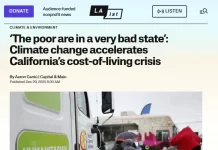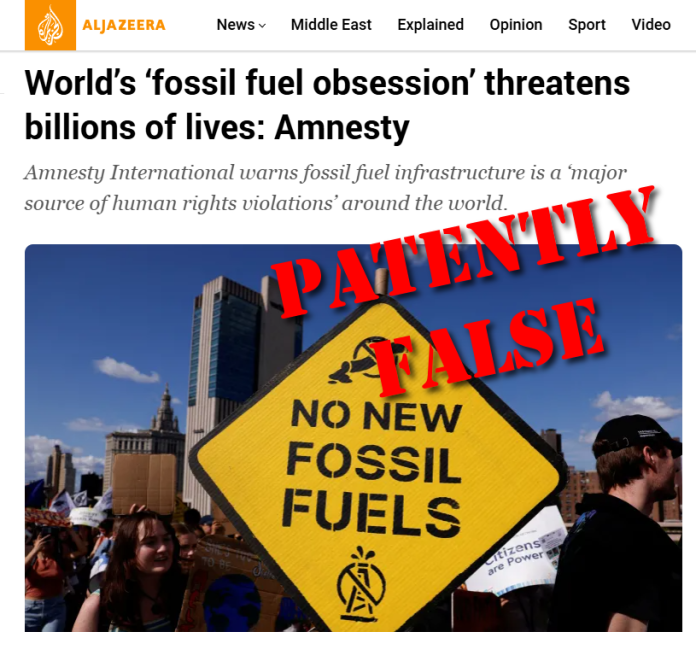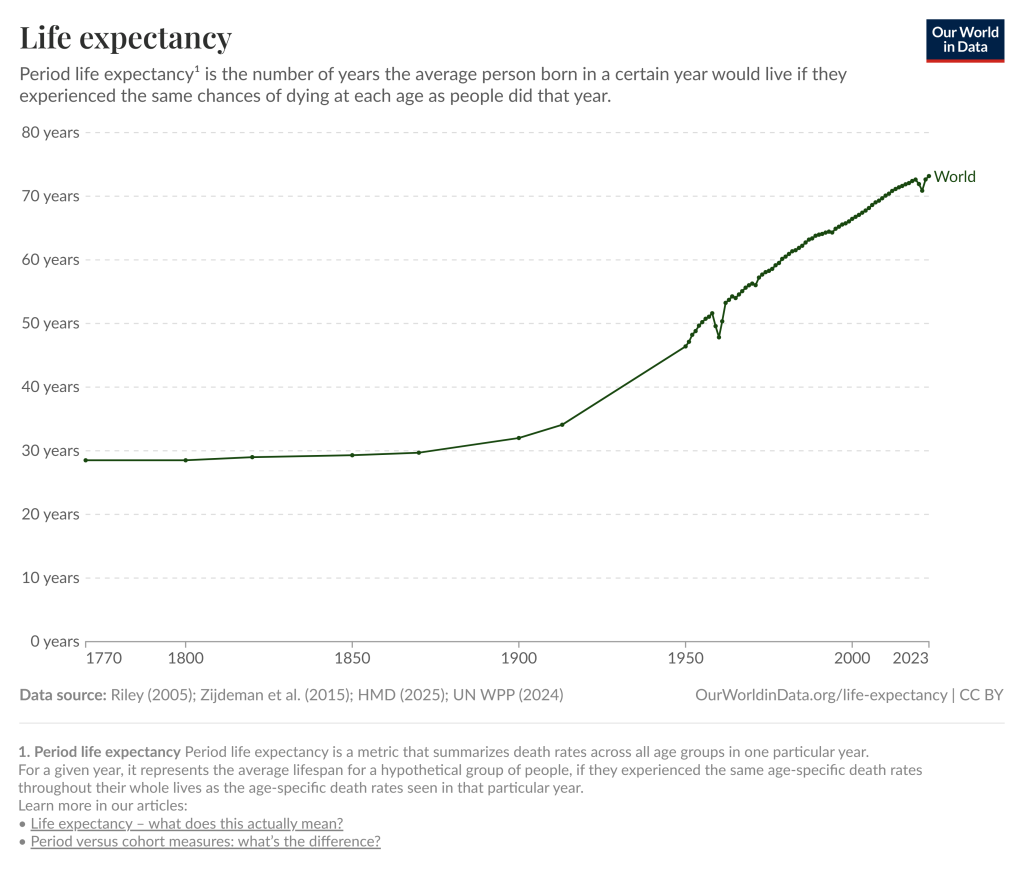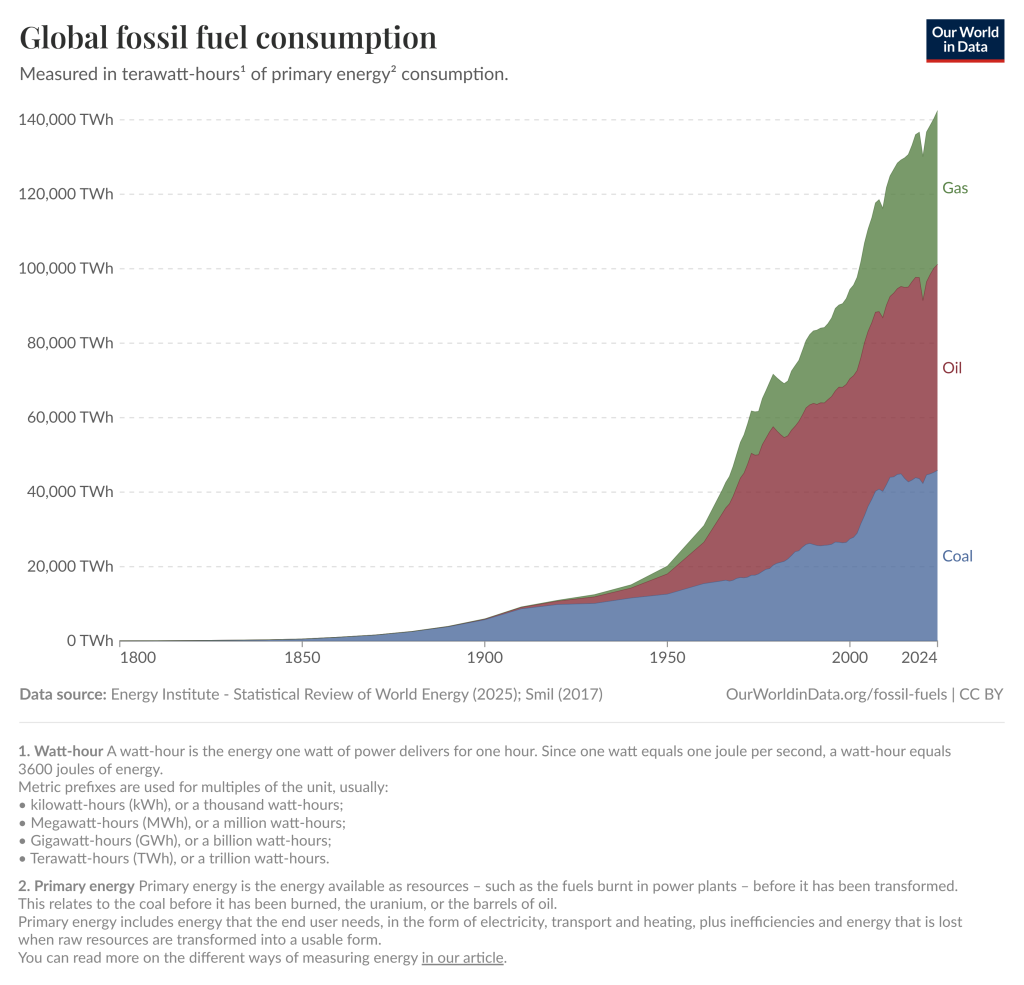In Al Jazeera’s article, “World’s ‘fossil fuel obsession’ threatens billions of lives: Amnesty,” reporter Jillian Kestler-D’Amours repeats Amnesty International’s (AI) claim that fossil fuels are “a major source of human rights violations” and an “existential threat” to billions of people. This is patently false. Data clearly demonstrate the development and use of fossil fuels over the past century have saved lives, powered prosperity, and improved the human condition around the world.
Al Jazeera quotes AI’s Secretary General, Agnes Callamard, who declared “[the] age of fossil fuels must end now” because fossil fuel use is “endangering billions of lives.”
Far from threatening billions of lives, fossil fuels have saved billions of lives and made it possible to feed and house the world’s eight billion people, a prospect unimaginable just a century ago.
Coal, oil, and natural gas have powered the greatest improvements in living standards, health, and life expectancy in human history. Before their widespread use, the average human lifespan hovered around 30 years. Today, thanks to affordable energy, global life expectancy exceeds 70 years.
Fossil fuels made that possible by providing the energy for clean water, reliable food production, modern medicine, and transport.
What AI and Al Jazeera omit is the fact that every aspect of modern life, from hospitals to housing, depends on fossil-fuel-derived materials and products. Crude oil derivatives are used to create thousands of essential goods—fertilizers, plastics, lubricants, clothing, and most remarkably, life-saving pharmaceuticals. Petroleum feedstocks are used to synthesize aspirin, ibuprofen, penicillin, and many chemotherapy drugs. These are not pollutants, they are products that keep humanity alive. The U.S. Department of Energy put together an informational flyer that says:
Petrochemicals derived from oil and natural gas make the manufacturing of over 6,000 everyday products and high-tech devices possible. Major petrochemicals—including ethylene, propylene, acetylene, benzene, and toluene, as well as natural gas constituents like methane, propane, and ethane—are the feedstock chemicals for the production of many of the items we use and depend on every day.
…
Modern life relies on the availability of these products that are made in the United States and across the globe. We zero in on some of these common household and commercial products below.
If fossil fuels were the “existential threat” Al Jazeera claims, the past century of unprecedented human progress would be inexplicable. Since 1750, global GDP has grown by more than 3,000 percent seen in Figure 1A, and extreme poverty has plummeted from more than 80 percent of humanity in 1800 to less than 10 percent in 2017, seen in Figure 1B.
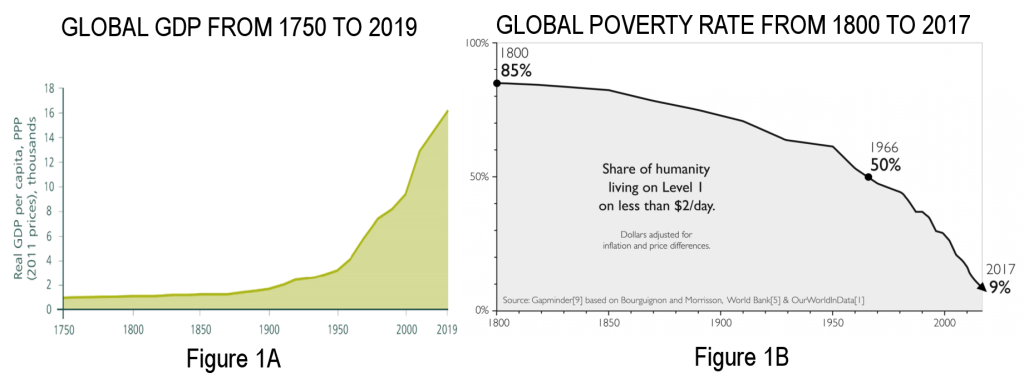
This global transformation to our modern society coincided precisely with global fossil fuel consumption, seen in Figure 2 below:
Moreover, AI’s and Al Jazeera’s attempt to link fossil fuels to global mortality from weather events is factually false. As Climate at a Glance: Deaths from Extreme Weather documents, climate-related deaths have declined by more than 95 percent over the past century, even as CO₂ levels rose. Fossil fuels didn’t increase danger, they enabled resilience. Modern energy powers emergency response systems, builds seawalls, and provides heating, air conditioning, protecting billions from heat and cold alike, and refrigeration, preventing spoilage that in the past lead to millions of deaths from food poisoning and hunger.
Likewise, Climate at a Glance: Temperature-Related Deaths shows that cold kills far more people than heat—nearly 10 times as many globally. Modest warming, aided by cheap energy for heating and cooling, has reduced net temperature-related mortality. That’s the opposite of Amnesty’s claim that fossil fuels are killing people.
Even the Intergovernmental Panel on Climate Change’s (IPCC) reports undercut Al Jazeera’s claims. The IPCC’s Sixth Assessment Report finds no clear trend of worsening extreme weather—including hurricanes, floods, or droughts. The supposed “climate crisis” invoked by Amnesty rests on computer model projections, not observational data.
Amnesty’s statement that fossil fuel infrastructure “is a major source of human rights violations” is not evidence; it’s advocacy. While the group highlights alleged pollution and indigenous rights disputes, it ignores the far greater human rights benefits of affordable energy. Nations that use more fossil fuels enjoy higher education rates, lower infant mortality, cleaner drinking water, and longer life spans. The correlation is consistent and overwhelming.
Amnesty’s demand that “the age of fossil fuel must end now” would, if taken literally, plunge billions into poverty and premature death. Even The Washington Post admits that without fossil fuels, economic production would collapse, electricity would become unreliable, and global food output would plummet. The humanitarian catastrophe would be immediate and catastrophic. As they say, “If fossil fuel production were stopped tomorrow, the world would quickly grind to a halt.”
The irony is that Amnesty International’s own advocacy relies on fossil fuels. Every activist flown to the COP30 summit in Brazil, every smartphone used to record protests, every banner and microphone—all exist thanks to petroleum-based materials and energy. By parroting Amnesty’s talking points without skepticism, Al Jazeera trades journalism for advocacy. Contrary to the premise of Al Jazeera’s story, fossil fuels remain the foundation of modern civilization and will continue to be so until scalable, reliable, relatively inexpensive alternatives emerge.
The data clearly demonstrate that as fossil fuel use has expanded, global health has improved, lifespans have grown, infant mortality, starvation, and hunger have dramatically declined, and prosperity has reached previously unimagined levels, delivering to billions of people previously relegated to impoverished lives, everyday conveniences that kings and rulers just a century ago could not have imagined. If there’s an “obsession” here, it’s not humanity’s with energy—it’s the media’s obsession with climate alarmism.






